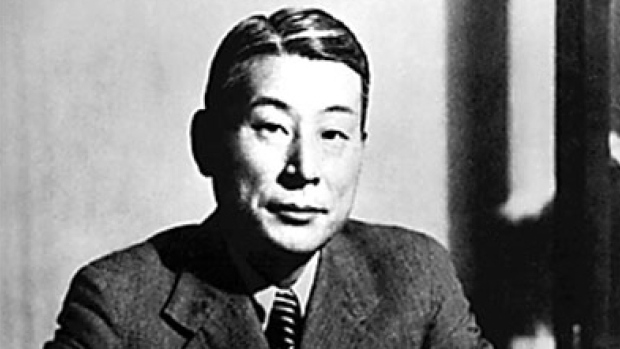Japan's Abe hails Holocaust hero Sugihara at Washington memorial

Japan's prime minister during a visit to the U.S. Holocaust Memorial Museum in Washington honored the Japanese envoy Chiune Sugihara who helped thousands of Jews escape the Holocaust.
Shinzo Abe, who met with President Barack Obama on April 28, said while at the Holocaust museum, "As a Japanese citizen, I feel extremely proud of [Chiune] Sugihara's work," the Jewish Telegraph Agency reported.
When he was Japan's imperial consul in Lithuania, Sugihara defied orders from his superiors to issue thousands of visas to Jews between 1939 and 1940, and after World War II he was shunned by Japan's foreign ministry.
During his visit, Abe and his wife each lit a commemorative candle in the Hall of Remembrance and met with three survivors who had been helped by Sugihara.
In January, Abe had visited the Yad Vashem Holocaust memorial in Jerusalem.
Abe has previously faced criticism for his allegedly revisionist views of Japan's own war-time behaviour, Agence France-Presse reported.
After returning to Japan Sughara, who was an Eastern Orthodox Christian, was forced to leave the foreign service for defying orders for 30 straight days granting visas.
Sugihara's story is the focus of the new exhibit Invisible Threads: Life-Saving Sugihara Visas and the Journey to Vancouver at the Vancouver Maritime Museum.
"We discovered the story of Chiune Sugihara who issued a number of transit visas to Polish and Lithuanian Jewish refugees to help them escape from Eastern Europe," museum curator Duncan McLeod told the CBC.
"It was a dangerous decision for him to issue these visas, because it could have been seen as an aggressive stance against Germany."
Sugihara's actions were in direct violation of orders from Japanese authorities due to their alliance with Germany.
Once a rising foreign service star, Sugihara, who was born in 1900, had to work in disgrace as a part-time translator after being thrown out of his job.
It was not until 1991, five years after his death, that his actions gained recognition from Japanese authorities who often had a trying time atoning for the actions of Japan in Asia during the war.
DACHAU INMATE
Solly Ganor knew Sugihara as an 11-year-old Jewish boy and later, as an inmate in Dachau, met Japanese-American troops.
"'My destiny was tied up with the Japanese people from the beginning," Ganor who lives in Israel told United Press International in September 1994.
"I knew Chiune Sugihara - he was the only light in a sea of darkness. He issued us visas."
Still, for Ganor, a visa was not enough to save him from Dachau. He was Lithuanian, which meant he had forced Soviet citizenship. He was arrested trying to leave Lithuania by Soviet police who handed him over to the Nazis.
Masha Leon was one of the 6,000 people issued an exit visas by Sugihara who made it to freedom, escaping Nazi and Soviet persecution.
"We arrived in Japan in February 1941 aboard the last ship to get here," said Leon in 1994, then aged 63.
"I went to a convent run by Japanese nuns in Kobe (western Japan). After the hell of the Nazis and Soviets it seemed like heaven," she said.